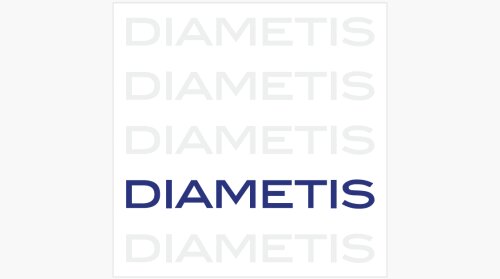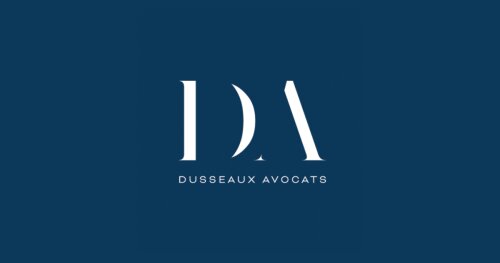Best Investment Lawyers in France
Share your needs with us, get contacted by law firms.
Free. Takes 2 min.
Or refine your search by selecting a city:
List of the best lawyers in France
About Investment Law in France
France offers a dynamic environment for both domestic and international investment, with a robust legal framework designed to promote economic growth and protect investors. Investment law in France is well-developed, incorporating both national legislation and European Union regulations. France is known for its investor-friendly policies, stable economy, and diverse market opportunities, making it an attractive destination for foreign investors. Key sectors for investment include technology, renewable energy, industrial manufacturing, and agricultural businesses.
Why You May Need a Lawyer
Engaging in investment activities in France can be complex, with numerous regulations and legal requirements to consider. Common situations where you might need legal assistance include:
- Navigating the process of setting up a business or purchasing shares in an existing company.
- Understanding and complying with regulatory frameworks and legislation.
- Negotiating and drafting contracts or agreements related to investments.
- Handling disputes or litigation involving investments.
- Ensuring compliance with taxation laws and regulations.
- Conducting due diligence and risk assessments for potential investments.
- Accessing government incentives and subsidies available for certain types of investments.
Local Laws Overview
Key aspects of local laws that are particularly relevant to investment in France include:
- Foreign Investment Regulations: While France generally welcomes foreign investors, certain sectors might require special authorizations. The Direction Générale du Trésor is responsible for supervising foreign investments in sectors sensitive to national security.
- Corporate Laws: France has specific laws governing corporate structures, including various options such as Société par Actions Simplifiées (SAS) and Société à Responsabilité Limitée (SARL).
- Taxation: The French tax system involves numerous taxes applicable to both individuals and companies, including corporate taxes, value-added tax (VAT), and capital gains tax.
- Labor Laws: Employers in France must adhere to rigorous labor laws that protect employee rights, influencing how businesses manage their workforce.
- Environmental Regulations: Investment projects in sectors such as energy and infrastructure need to comply with stringent environmental standards and regulations.
Frequently Asked Questions
What types of business structures are available for foreign investors in France?
Foreign investors can choose from several business structures, including SARL (Limited Liability Company), SA (Public Limited Company), SAS (Simplified Joint Stock Company), and branch offices, each offering different legal and tax implications.
Are there any industries restricted to foreign investment?
While most industries are open to foreign investment, sectors that could impact national security, such as defense and telecommunications, might require governmental approval or are subject to specific restrictions.
What is the process for registering a new business in France?
Registering a business in France involves several steps, including choosing a legal structure, drafting articles of association, registering with the Chamber of Commerce, and obtaining a SIRET number (business identification number).
What taxes are applicable to investments in France?
Investments are subject to various taxes, including corporate tax, variable based on profits, VAT applied to goods and services, and potentially property tax, depending on the nature and location of the investment.
What incentives are available for foreign investors in France?
The French government offers incentives such as tax breaks, grants, and subsidies for investments in priority sectors like tech, research and development, and renewables.
How can I protect my investment in France?
Protecting your investment involves conducting thorough due diligence, understanding local laws, utilizing legal protections available under French law, and potentially insuring against risks.
What are the corporate governance standards in France?
French corporate governance standards are in line with EU directives, focusing on transparency, accountability, and protecting shareholder rights, with specific requirements for listed companies.
Do I need to comply with EU law when investing in France?
Yes, as a member of the European Union, France applies EU regulations, particularly in areas of competition, mergers, and consumer protection.
What is the process to settle investment disputes in France?
Disputes can be resolved through litigation in French courts, or through alternative dispute resolution methods such as arbitration, often favored for international investment disputes.
Can I repatriate profits from my investment in France?
France allows the repatriation of profits for foreign investors, although it's subject to regulatory compliance, including meeting tax obligations.
Additional Resources
For further information on investment in France, one can consult the following resources:
- Direction Générale du Trésor: Offers guidance and regulatory information for foreign investments in France.
- Infogreffe: The French commercial court’s website, provides information on business registration and corporate structures.
- France Invest: An organization representing private equity investors in France, offering insights and support.
- BPI France: Provides financial guidance and support to businesses, particularly small and medium enterprises (SMEs).
- AFE (Agence France Entrepreneur): Offers resources and advice for entrepreneurs looking to start or develop a business in France.
Next Steps
If you need legal assistance in investment, consider these steps:
- Define your investment objectives and have a clear understanding of what you wish to achieve.
- Consult with an experienced lawyer specializing in French investment laws to gain insights tailored to your specific situation.
- Conduct a comprehensive risk analysis and legal due diligence for your intended investment.
- Ensure you have a solid understanding of the legal requirements and regulatory environment.
- Develop a clear legal strategy for managing contracts, compliance, and potential disputes.
Always consider working with legal and financial advisers who are familiar with both French and international investment frameworks to ensure compliance and protect your investments.
Lawzana helps you find the best lawyers and law firms in France through a curated and pre-screened list of qualified legal professionals. Our platform offers rankings and detailed profiles of attorneys and law firms, allowing you to compare based on practice areas, including Investment, experience, and client feedback.
Each profile includes a description of the firm's areas of practice, client reviews, team members and partners, year of establishment, spoken languages, office locations, contact information, social media presence, and any published articles or resources. Most firms on our platform speak English and are experienced in both local and international legal matters.
Get a quote from top-rated law firms in France — quickly, securely, and without unnecessary hassle.
Disclaimer:
The information provided on this page is for general informational purposes only and does not constitute legal advice. While we strive to ensure the accuracy and relevance of the content, legal information may change over time, and interpretations of the law can vary. You should always consult with a qualified legal professional for advice specific to your situation.
We disclaim all liability for actions taken or not taken based on the content of this page. If you believe any information is incorrect or outdated, please contact us, and we will review and update it where appropriate.
Browse investment law firms by city in France
Refine your search by selecting a city.















